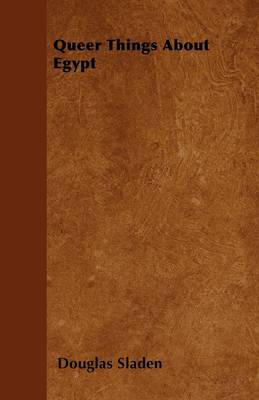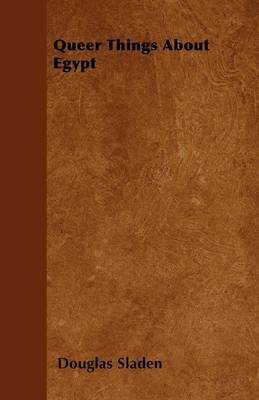
- Afhalen na 1 uur in een winkel met voorraad
- Gratis thuislevering in België vanaf € 30
- Ruim aanbod met 7 miljoen producten
- Afhalen na 1 uur in een winkel met voorraad
- Gratis thuislevering in België vanaf € 30
- Ruim aanbod met 7 miljoen producten
Zoeken
Omschrijving
Douglas Brooke Wheelton Sladen was an English author. He studied at Trinity College, Oxford, and went to Australia (1879), where he became the first professor of history in the University of Sydney. Subsequently he traveled much and settled in London as a writer. Poems by Margaret Thomas were included in a work in the 1880s. Sladen takes up his pen to describe the humours of Egyptian society, Egyptian servants, and, above all, the humours and delights of travel in Upper Egypt. He gives glimpses of all the everyday life of the Englishman in Egypt, from doing business (with Egyptians) to donkey-riding. He also devotes several chapters to the eccentricities of the Egyptian Court. The incidents in them were the actual experiences of a very high official and his wife, given to him for publication. Not less interesting to some people than the humours of Egyptian high-life, Egyptian patriotism and Egyptian morality will be the advice on curio-buying in Egypt when you have not much money to spend. The book is not entirely taken up with anecdotes and absurdities. Like Queer Things about Japan and Queer Things about Persia, it devotes half its pages to the monuments, the romance, the mystery, and the poetry of the Orient. The fascination of Egypt is extraordinary; its monuments are matchless.
Specificaties
Betrokkenen
- Auteur(s):
- Uitgeverij:
Inhoud
- Aantal bladzijden:
- 512
- Taal:
- Engels
Eigenschappen
- Productcode (EAN):
- 9781447403661
- Verschijningsdatum:
- 21/04/2011
- Uitvoering:
- Paperback
- Formaat:
- Trade paperback (VS)
- Afmetingen:
- 140 mm x 216 mm
- Gewicht:
- 644 g

Alleen bij Standaard Boekhandel
+ 92 punten op je klantenkaart van Standaard Boekhandel
Beoordelingen
We publiceren alleen reviews die voldoen aan de voorwaarden voor reviews. Bekijk onze voorwaarden voor reviews.











